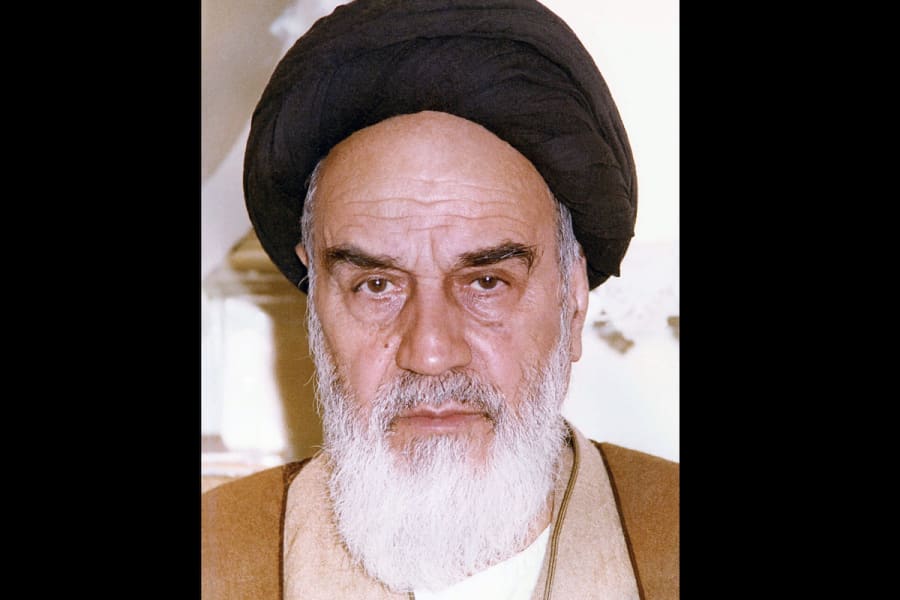Khomeini’s ideological blueprint for Iran’s theocracy

The Islamic Republic of Iran is not merely a nation-state—it is a theocratic experiment built on the revolutionary ideology of Ayatollah Ruhollah Khomeini. At its core lies Wilayat al-Faqih (Guardianship of the Jurist), a doctrine that transformed Shia political theology and justified clerical absolutism. Khomeini’s writings on this concept, particularly in his 1970 lectures compiled as Islamic Government, reveal a vision where jurists wield divine authority, dissent becomes heresy, and apocalyptic politics shape Iran’s confrontation with the world.
For Israel and the West, understanding Wilayat al-Faqih is not academic—it is strategic. This ideology fuels Iran’s support for proxies like Hezbollah, its nuclear ambitions, and its existential hostility toward the Jewish state. As tensions escalate, Khomeini’s words remain a manifesto for Iran’s regime, framing its actions as sacred duties in a cosmic struggle.
From Obscure Doctrine to Revolutionary Ideology
Before Khomeini, Wilayat al-Faqih was a niche legal concept in Shia Islam, limited to guardianship over orphans, the mentally ill, and religious endowments . Most Shia clerics adhered to quietism, believing political rule should await the return of the Twelfth Imam, the Mahdi. Khomeini shattered this tradition, arguing that in the Imam’s absence, senior jurists must govern—not just as administrators but as divine deputies with "the same authority as the Prophet and Imams".
His 1970 lectures, delivered in exile in Najaf, Iraq, redefined the doctrine:
Absolute Authority: The faqih (jurist) could suspend Islamic rituals like prayer or Hajj if deemed necessary for the state’s survival—a power Khomeini later exercised during the Iran-Iraq War .
Infallibility by Proxy: While Shia Islam reserves infallibility (ismah) for the Twelve Imams, Khomeini implied the Supreme Leader’s rulings were divinely guided, making opposition tantamount to apostasy.
Exporting Revolution: Khomeini saw Iran’s 1979 Revolution as the first step toward a global Islamic order, declaring, "We shall confront the world with our ideology" .
These ideas were radical even among clerics. Grand Ayatollah Abol-Qasem al-Khoei, Najaf’s preeminent scholar, rejected Wilayat al-Faqih as blasphemous . Yet Khomeini’s populist appeal—framing the Shah as a Western puppet and clerics as champions of the oppressed—catapulted his vision into Iran’s constitution.
Theocracy as Apocalyptic Warfare
Khomeini’s writings reveal a messianic undertone: the Islamic state must actively pave the way for the Mahdi’s return. This theology shapes Iran’s foreign policy:
Israel as an Eschatological Foe: In Shia eschatology, Jerusalem’s liberation precedes the Mahdi’s advent. Khomeini framed Zionism as a "corrupting force," making anti-Israel rhetoric not just political but sacred. His successor, Ali Khamenei, has repeatedly called Israel a "cancerous tumor" destined for annihilation.
Martyrdom as Sacred Violence: Khomeini politicized Shia mourning rituals, turning figures like Qassem Soleimani into "saints" of the Mahdi’s army. Dying for the regime became a path to paradise.
Chaos as Divine Catalyst: Some hardliners believe crises—like war or economic collapse—hasten the Mahdi’s return. This may explain Iran’s tolerance for suffering under sanctions and its destabilizing proxy wars.
In fact, the Islamic Republic doesn’t just endure crisis—it needs it.
Legacy: A Regime That Cannot Reform
Khomeini’s ideology leaves no room for pluralism. The 1989 constitution amendments cemented absolute Velayat-e Faqih, granting the Supreme Leader control over the military, judiciary, and media. Even "reformist" presidents like Khatami could not challenge this structure—Khomeini had warned that democracy without clerical oversight was "Western poison".
Today, Khamenei rules as Khomeini’s heir, enforcing orthodoxy through the Revolutionary Guard and basij militia. Dissenters—from protesters in 2022 to reformist clerics—are branded enemies of God.
For Israel, this is not a regime that can be negotiated with on pragmatic terms. Its leaders see themselves as actors in a divine drama where compromise is heresy. As Khomeini wrote: "The Quran and the sword must be wielded together".
Conclusion: The Ideological Threat
Western policymakers often misread Iran as a rational actor driven by realpolitik. But Khomeini’s writings remind us that the regime’s actions—from nuclear brinkmanship to arming Hamas—are rooted in a theology of confrontation.
For Israel, the challenge is existential. A state that believes chaos brings redemption will not be deterred by sanctions alone. Understanding Wilayat al-Faqih is the first step to countering it.

Aurthur is a technical journalist, SEO content writer, marketing strategist and freelance web developer. He holds a MBA from the University of Management and Technology in Arlington, VA.













